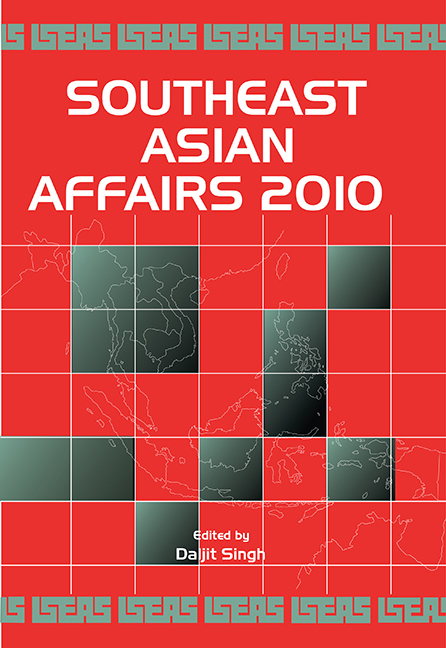Brunei Darussalam in 2009: Addressing the Multiple Challenges
from BRUNEI DARUSSALAM
Published online by Cambridge University Press: 21 October 2015
Summary
While the full impact of the global recession of 2008 and early 2009 spared Brunei Darussalam, it nevertheless had to tread cautiously and avert any negative consequences from the economic fallout on the socio-political landscape. Brunei Darussalam — the abode of peace — is often characterized by outsiders as a place where life is easy and nothing much ever happens. To the casual observer it may appear that no dramatic events upset this state of affairs. But Brunei Darussalam has had its share of significant issues, and 2009 will be seen as an eventful year in the socio-political annals of the state.
Maturing Nation
Brunei entered its twenty-fifth year of statehood with the theme Kedewasaan Bernegara (maturity of the nation) for its national day celebrations. The aspirations of a maturing nation were emphasized in leaders’ pronouncements and policy implementations. Although a modernizing monarchical system with an appointed cabinet, the system has nevertheless become entrenched for ministers and civil servants to follow a well trodden behavioural system established over the decades. This particular attitude and work ethic finally drew a hard hitting speech from the monarch, Sultan Haji Hassanal Bolkiah. He berated the state's ministers and officials for their lack of initiative and failure to be proactive in a number of areas that required appropriate action plans, and remarked his abhorrence of the practice of acting like robots. Although welcoming his frank observations, the nation was taken aback by such a forceful speech by the Sultan. Moreover, it became a recurrent theme in his addresses throughout the year; he has been expressing his deep concern over the state of affairs through a few other equally intense remarks, for instance, on the issue of unspent zakat money in the face of prevalent poverty within certain sections of the community, the direction the newly created Islamic University was pursuing against the original intentions that it was established for, and the lack of obligatory religious education in the revamped syllabus for public schools.
As in previous years, the legislative council met for its annual deliberations in March.
- Type
- Chapter
- Information
- Southeast Asian Affairs 2010 , pp. 71 - 82Publisher: ISEAS–Yusof Ishak InstitutePrint publication year: 2010



